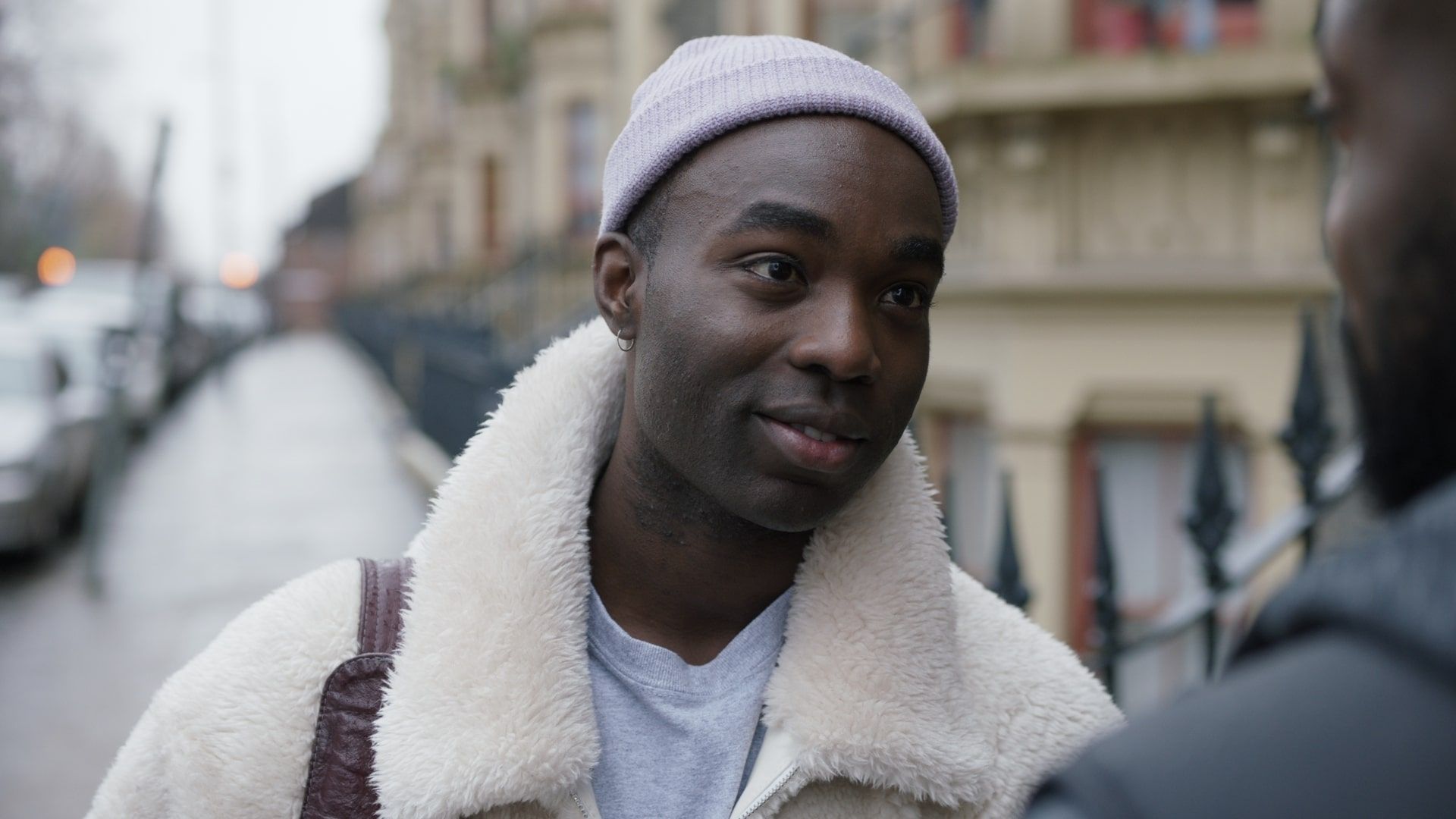Michaela Coel has triumphed once again. Acclaim for her raw, unflinching drama I May Destroy You has been rapturous both online and in column inches as the shownavigates the ambiguities of consent, the power of sexual currency and the trauma faced by survivors of rape and assault. What’s more, Coel has also been lauded for delving into the rarely depicted experience of the Black British millennial through her complex, flawed but endearing main characters. Kwame, portrayed with masterful levels of nuance, pain and fragility by Paapa Essiedu, is one of protagonist Arabella’s closest allies yet is never relegated to the clichés of a catty, z-snapping ‘gay best friend’. He is at first confident and promiscuous but deteriorates into a state of vulnerability and denial when he faces his own encounter with sexual violence.
When a hook-up ends in a non-penetrative sexual assault, Kwame heads to the police station to report it. The lack of sympathy and professionalism shown by the officer who takes his statement is shocking, especially when compared to Arabella’s compassionate reception just a couple of episodes prior. This gut-wrenching scene exemplifies attitudes endemic in an institution that perceives Black men as perpetrators, but not as victims. Essiedu has called his character’s story “historic” which is true, never before in British TV has the identity of a queer Black man been examined in such depth, not least in a plot that doesn’t revolve around a white character. However, the delight of seeing a character like Kwame on our screens makes the remainder of his character development slightly disappointing.
To counter the trauma he has received at the hands of masculine aggression, Kwame decides to adopt a dominant sexual role by experimenting with a woman. Enter Nilufer: a liberal, white twentysomething who appears intelligent and sweet-natured on first glance. Yet, it doesn’t take long for the red flags to show as Nilufer fetishizes Kwame’s blackness, coerces him into sex and flaunts her homophobic views, prompting Kwame to reveal to her that he is gay. Feeling disgusted and betrayed, she throws him out of her flat.
Coel’s characterisation of Nilufer is as ingenious as it is timely as she embodies the nasty anti-queer edge of current ‘radical’ white feminism. Her assertion that gay men are “major appropriators of the female identity” wouldn’t seem out of place on the lips of the Mumsnet brigade who define drag as a misogynistic version blackface and equate transgender healthcare with conversion therapy. Also, her escalation towards anger while side-stepping her use of homophobic and racial slurs typifies white women’s entitlement to victimhood in situations of racialized conflict. The viewer can see that she is a deeply problematic person so at this point our sympathies lie with Kwame.
However, this incredulous plotline takes a turn for the worse in the next episode when Kwame relates the encounter to Arabella and Terry. All agree that Kwame’s actions were deceitful, but Arabella goes further with her reproach and labels him “destructive, narcissistic [and] sick” in one of the series’ most explosive arguments. It is one thing for Nilufer to create her own realm of victimisation but this reaction from Kwame’s closest circle positions him as a predator. It is stated many times in the show that sexuality is a spectrum and that one’s own definition of it can be fluid, therefore it is confusing that Kwame’s non-disclosure is categorised as abusive. Straight people are not at liberty to disclose their sexual history to every person they sleep with; we should not expect anything different from a queer person. How much of yourself are you obliged to reveal before you can accept consent in good faith?
Kwame’s behaviour is categorised as immoral without any further debate, a notion which is consolidated in episode 11 when Kwame meets with Nilufer to apologise in what is perhaps the clunkiest part of I May Destroy You’s otherwise seamless narrative. Kwame seeks forgiveness where he need not ought to and none of Nilufer’s prejudice is challenged. It is a wasted scene that achieves nothing and plays to the harmful idea that queer people trick and deceive others when they do not out themselves. Regrettably, it is hard not to feel robbed of a more touching scene where, after a myriad of emotionally detached, almost self-flagellating sexual liaisons, the vestiges of Kwame’s trauma could begin to be unpicked with the help of his caring new partner Tyrone.
Both Arabella and Terry are given a redemption arc, the former is forgiven for her damaging phase of social media obsession and the latter is absolved of blame for encouraging the abandonment of Arabella on the night of her assault. Full closure is a rare thing for survivors of rape and sexual assault but Kwame’s complete absence in the series finale really drives home the sense of incompleteness in his development. Kwame is one of British TV’s most compelling and culturally significant characters in recent years and he simply deserved a better ending.
By Alex Gibbon
Featured Image courtesy of Esquire

